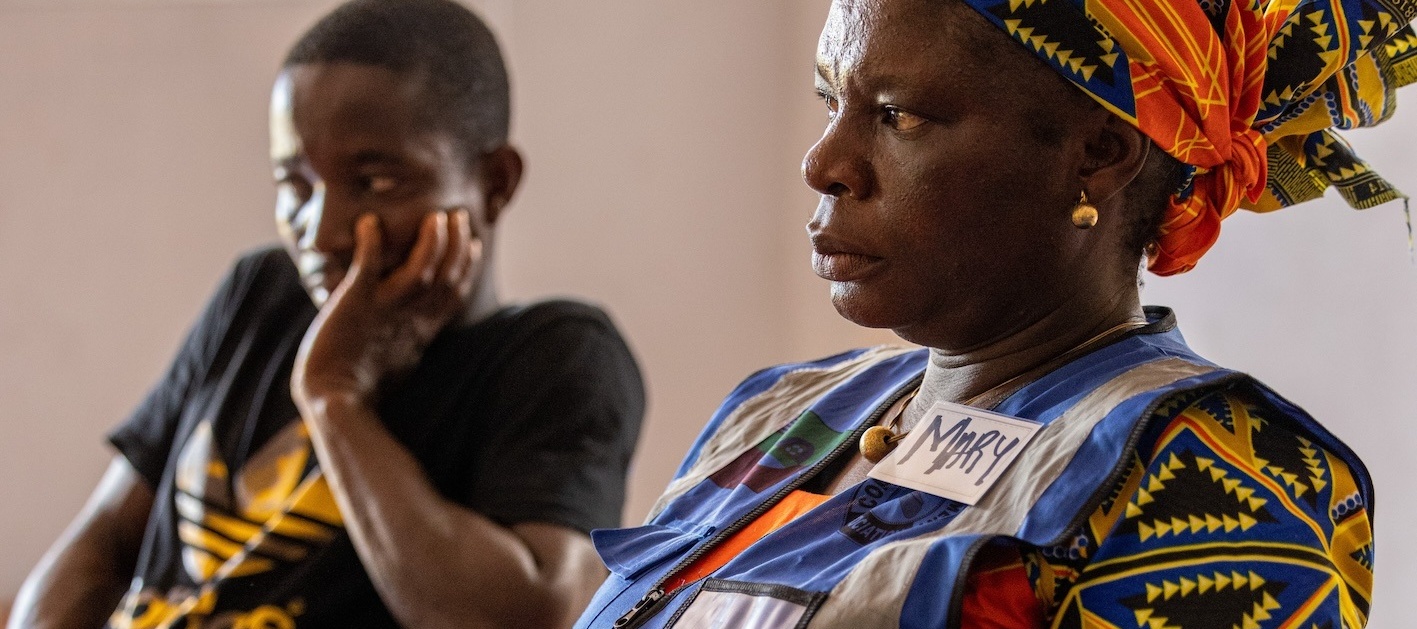
Women are the backbone of coastal fishing communities. In Liberia, despite making up 60% of the fisheries workforce, women are too often left out of decisions on how to manage fisheries and excluded from leadership positions.
To combat this structural inequality, we are implementing an EU-funded project called Communities for Fisheries. We set up women’s community-run savings associations called ‘Village Savings and Loans Associations’ (VSLAs). Under the system, people can pool their savings and borrow from the shared pot. Some of the investments people have made include building fish-smoking sheds to add value to their products, buying a mattress, and replacing canoes lost in accidents.
This article published in Oceanographic tells the stories of the women involved and how they’ve gained greater financial, social, and political independence as a result.
The strongest pillar
Although it is men who haul in the nets on Liberia's beaches, fishing is an industry that is largely driven by women. Women lead the post-harvest activities by processing, marketing, and preserving the catch. They are also the leading distributors of fish and hold traditional ecological knowledge on processing and preserving fish, which is invaluable for fisheries management.
However, they often face challenges that limit their active participation in the management and administration of the sector.
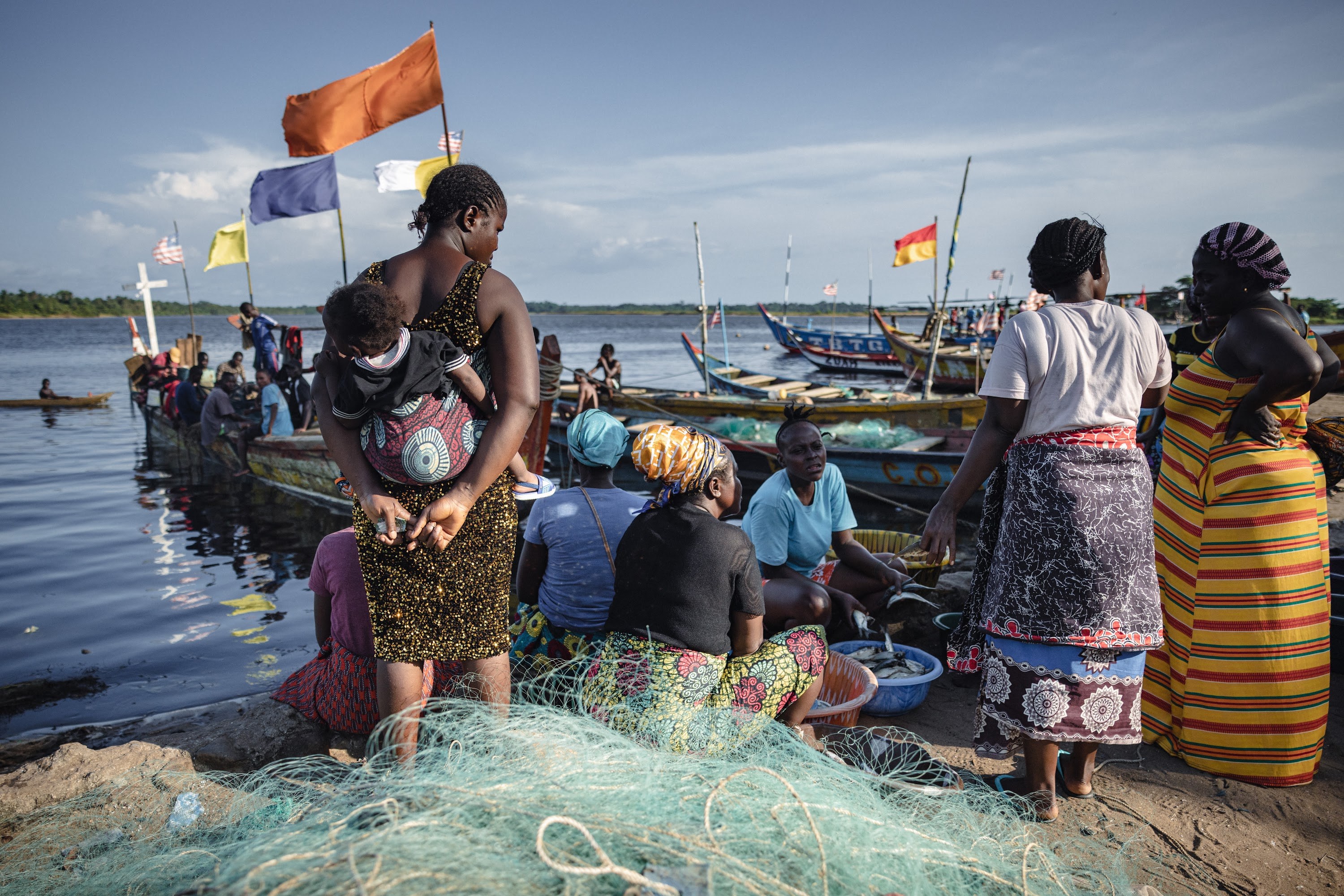
The change has been dramatic - between 2021 and 2023, over $300,000 was saved across the associations. The financial freedom which the VSLAs provide has also given women the foundation they need to run for fisheries management positions - we’ve seen a 50% increase of women in leadership positions.
We applaud EJF's team in Liberia, who have worked extremely hard to help support the development of these VSLAs, helping women in the fisheries sector and across their local communities to secure leadership positions.
The success of VSLAs was made possible because of the collaboration and capabilities of their participants. There is still a long way to go in the fight against poverty and gender inequality in Liberia’s small-scale fisheries sector, but these women are starting to turn the tide.
To learn more, you also can read our new report here.
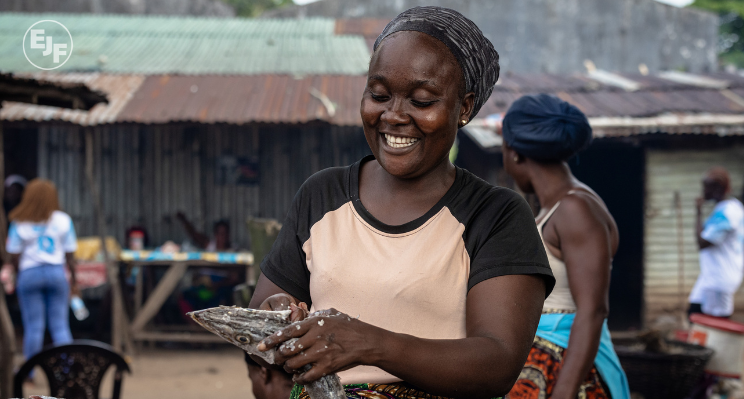
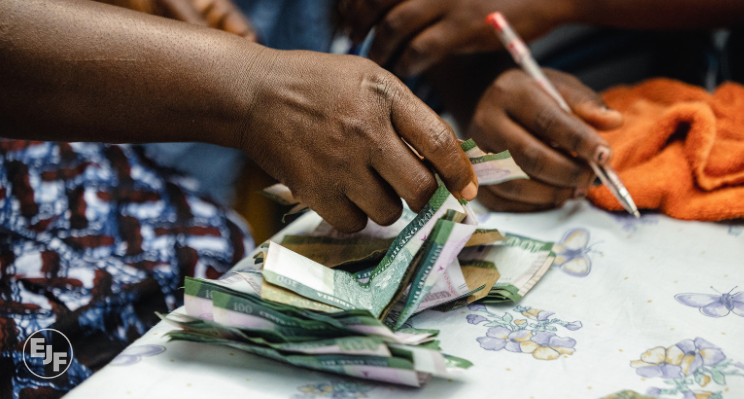
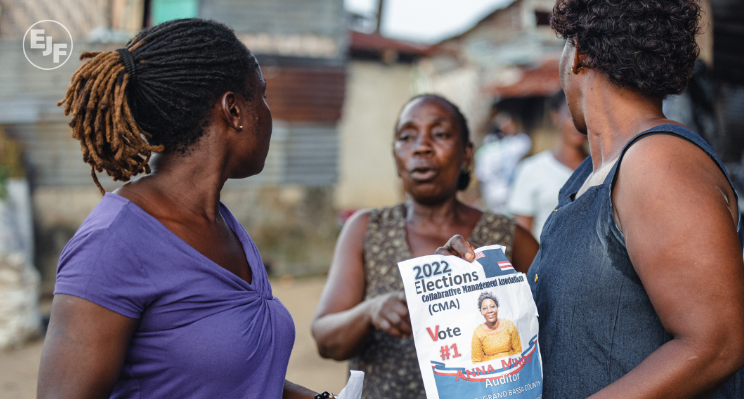
SIGN UP FOR OUR EMAILS AND STAY UP TO DATE WITH EJF
